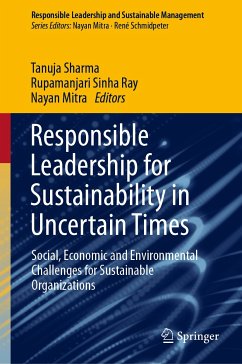
French Welfare State Reform (eBook, PDF)
Idealism versus Swedish, New Zealand and Dutch Pragmatism
Versandkostenfrei!
Sofort per Download lieferbar
23,95 €
inkl. MwSt.
Weitere Ausgaben:

PAYBACK Punkte
12 °P sammeln!
Over the past two decades, many welfare states have experienced a combination of low economic growth and rising unemployment, concurrent with increasing pension and health care obligations, which has exacerbated government budget deficits. Some analysts forecast that for a number of welfare states these problems will worsen in the future. Their fiscal problems, in particular, present welfare state policy makers with the dilemma of attempting to fund redistribution schemes consistent with the ideal of a secure egalitarian society while at the same time remaining competitive in a 'new economy' t...
Over the past two decades, many welfare states have experienced a combination of low economic growth and rising unemployment, concurrent with increasing pension and health care obligations, which has exacerbated government budget deficits. Some analysts forecast that for a number of welfare states these problems will worsen in the future. Their fiscal problems, in particular, present welfare state policy makers with the dilemma of attempting to fund redistribution schemes consistent with the ideal of a secure egalitarian society while at the same time remaining competitive in a 'new economy' that places a premium on competition, innovation, and flexible labour and product markets.
Thus, an important issue has emerged: what types of reforms are required to enable welfare states to preserve sustainability? For the purpose of this study, a sustainable welfare state is one that can remain the guarantor against social risks and adverse economic trends for all segments of their respective societies and satisfy sound fiscal criteria (such as the Maastricht requirement for all members of the EMU that their fiscal budget deficit does not exceed 3% of the GDP), without imposing considerable financial burdens on future generations.
Thus, an important issue has emerged: what types of reforms are required to enable welfare states to preserve sustainability? For the purpose of this study, a sustainable welfare state is one that can remain the guarantor against social risks and adverse economic trends for all segments of their respective societies and satisfy sound fiscal criteria (such as the Maastricht requirement for all members of the EMU that their fiscal budget deficit does not exceed 3% of the GDP), without imposing considerable financial burdens on future generations.
Dieser Download kann aus rechtlichen Gründen nur mit Rechnungsadresse in A, D ausgeliefert werden.













